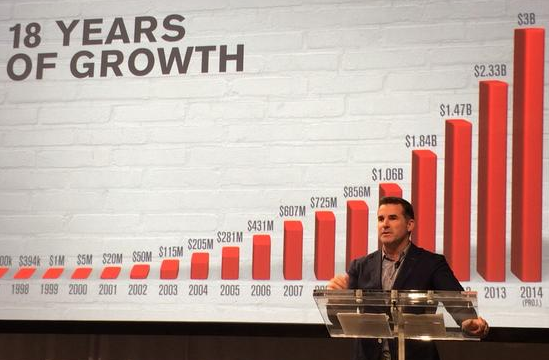

Can The Sole Practitioner Beat The Big Guy?
| |
Each and every day, small businesses compete directly against the big guy and succeed. This is done by changing the rules of the game and competing selectively. Overtime, the small entrepreneurial firm becomes one of the big guys and we forget about their rags to riches story.
At one time, Nike was a start-up operation started by a University of Oregon college track coach Bill Bowerman and his former middle-distance runner. That middle-distance runner was a degreed accountant from the University of Oregon named Phil Knight. Both invested $500 to form a partnership in 1964 and today, Nike is a global athletic manufacturer with nearly $34 billion in sales. At the time, Nike sneakers were totally different from Converse, Keds and traditional sneakers on the market. $34 billion of growth in fifty three years is pretty impressive and now they are THE global juggernaut in athletic footwear, apparel and sporting goods.
So can a small start-up operation with limited funds compete against Nike and other global operators like Adidas, Reebok, and Puma? Of course. However, the mouse trap must be unique and compelling.
In 1996, a former University of Maryland football player named Kevin Plank was convinced that a moisture wicking fabric could help regulate the body temperature of athletes better than cotton t-shirts. With $20,000 of his own money and $290,000 in loans, he started his own athletic apparel company from his grandmother's basement in Washington D.C. With the prototypes that were developed, his first sale was to Georgia Tech for $17,000. And years later, Kevin's business now has 13,500+ employees and does at least $4 billion in sales under the name of Under Armour.
Other examples that come to mind are Samuel Adams, Whole Foods, and Cirque du Soleil. In each of these cases, these start-ups have figured out ways to create a niche in the market without relying upon discounting their price. In each example, they command an attractive premium and compete with larger competitors with very deep pockets.
With this orientation, you can probably tell that we would not recommend that a new CPA firm compete directly with larger CPA firms by targeting medium and large-sized businesses providing audits, reviews, and traditional accounting services. As in the examples provided above, a new firm should fly underneath the radar screen of more established CPA firms, provide a unique selling proposition that resonates with small business owners and plays to the strengths of the sole practitioner.
How the small accounting form can win:
- Create an industry niche and own it – To differentiate your practice and acquire the types of clients you want, have you considered developing an accounting niche? Do you know more about a particular industry? Are you passionate about an industry? With a niche, you can broaden the geographic radius of your practice because you become an industry expert. If large regional CPA firms can develop niches with auto dealerships, why can't you develop a niche within a particular industry that is under their radar screen?
- Blog boldly and consistently – To establish yourself as a trusted advisor, add a blog to your website and post regularly. Show some personality and wit. If done well, it will slowly pick up steam and create a following.
- Write a newspaper column – Most local newspapers are struggling financially as the internet has cut holes into their business model. As a result, the editorial departments in most local newspapers are starving for reliable content from someone with your expertise.
- Organize for productivity – To compete on fixed fees for smaller businesses, you might want to consider systematizing your production process so you can process clients more efficiently. Many medium and large-sized CPA firms have fixed overhead costs that preclude them from working with businesses below a certain fee level. If companies like Southwest Airlines can turn the airline industry upside down, maybe you can too.
If you are willing to create a unique and compelling point of difference like Phil Knight did with Nike and Kevin Plank did with Under Amour, you too can create a foothold into the market. Be strategic about how you market your practice and then, Just Do It!



